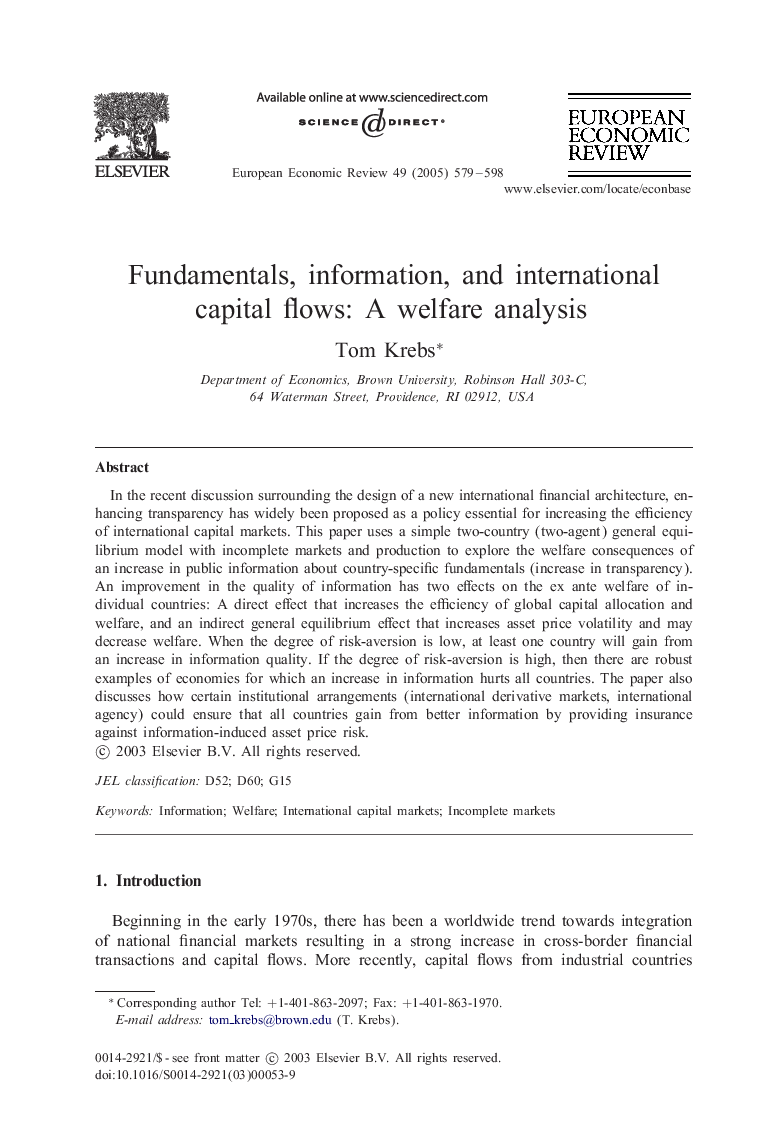| Article ID | Journal | Published Year | Pages | File Type |
|---|---|---|---|---|
| 9550842 | European Economic Review | 2005 | 20 Pages |
Abstract
In the recent discussion surrounding the design of a new international financial architecture, enhancing transparency has widely been proposed as a policy essential for increasing the efficiency of international capital markets. This paper uses a simple two-country (two-agent) general equilibrium model with incomplete markets and production to explore the welfare consequences of an increase in public information about country-specific fundamentals (increase in transparency). An improvement in the quality of information has two effects on the ex ante welfare of individual countries: A direct effect that increases the efficiency of global capital allocation and welfare, and an indirect general equilibrium effect that increases asset price volatility and may decrease welfare. When the degree of risk-aversion is low, at least one country will gain from an increase in information quality. If the degree of risk-aversion is high, then there are robust examples of economies for which an increase in information hurts all countries. The paper also discusses how certain institutional arrangements (international derivative markets, international agency) could ensure that all countries gain from better information by providing insurance against information-induced asset price risk.
Related Topics
Social Sciences and Humanities
Economics, Econometrics and Finance
Economics and Econometrics
Authors
Tom Krebs,
